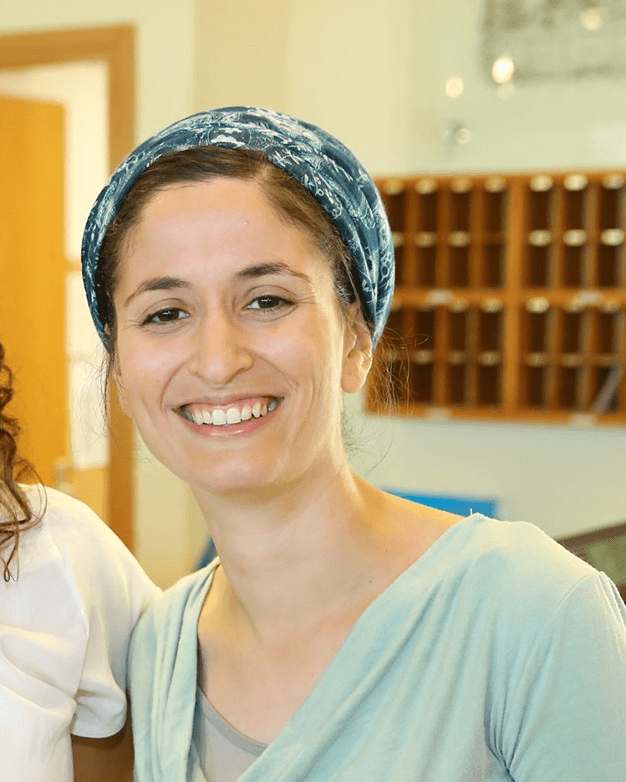A study by researchers from the Hebrew University and the German University of Würzburg, led by Prof. Yoni Pertsov and Uria Lankeri-Dain, found that the human ability to process large parts of the field of vision optimizes the search operation he performs. As a result, the researchers suggest that inter-individual differences in the processing ability of the visual field can explain inter-individual differences in performance in a search task

Search is an integral and everyday part of human life - we look for keys, cell phones, groceries in the supermarket, a shirt in the closet, a car in the parking lot and more. According to a survey conducted about a decade ago, we spend about 10 minutes a day looking for different things, which amounts to about 153 days throughout life. Human search capabilities can also have life-saving implications; If you are a rescuer, radiologist or security guard, it is important to understand what will allow your search to be efficient and fast. It is no wonder then, that search tasks have become one of the main research topics in cognitive psychology, which have aroused interest among the research community and beyond for several decades. At the heart of this field of research is the assumption that in order for people to be able to direct the search towards the goal effectively, knowledge about the goal of the search is required that will allow them to build a template of the goal that will guide the search. It seems that this assumption is trivial - how can you direct the search towards the goal without knowing what it looks like?
The mechanism lies in long-term memory
A common human experience, challenges this assumption. Imagine you are going to a conference or a crowded stadium, and you decide to look for someone you know to sit next to you. You don't know which of your acquaintances is likely to be at the conference or the stadium, but suddenly a familiar person "jumps" into your field of vision that you didn't expect to see. In this type of search, you could not have had a pattern guiding the search, because there are a very large number of representations in long-term memory that could have been the target of the search. If there is no active mechanism of a guiding and active brain pattern, what are the cognitive processes underlying this type of search?
In a new international study published at the beginning of this month In the scientific magazine "Psychological Science", Under the title "Search for the Unknown", the sample A group of researchers from Israel and Germany, from the departments of psychology at the Hebrew University and the University of Würzburg, because even if it seems paradoxical, people can find the search target effectively, even if it is unknown to them. In order to demonstrate this ability, a group of subjects consisting of dozens of Israelis and dozens of Germans was recruited, to whom the researchers showed a circle of five facial images. In each circle, one of the pictures was of an Israeli celebrity and one of a German celebrity. The subjects were asked find the person they know, without giving them any details regarding the identity of that person. Each of the face images was presented only once, which made it difficult for the subjects to build an active guiding pattern throughout the experiment. In addition, given the large number of famous people, in this case, the subjects had no ability to form a mental image of the target that would guide the search.
The same eye movements in Israel and Germany
Although the study tested two groups of participants in two different laboratories and on two different continents, the eye movements tested by the researchers were remarkably similar in both. In particular, indications of effective search were found - the subjects looked at the familiar faces faster, both in relation to random search and in relation to the search goal of the other group. In addition, the eye movements towards the familiar faces were executed from greater distances. This finding indicates that despite the lack of knowledge regarding the visual characteristics of the target, the target was recognized and attracted the subjects' attention, allowing for faster performance of the search task. "Our findings indicate that long-term familiarity with the figures, including the celebrities, was sufficient to guide the gaze towards the target, even in the absence of an active search pattern," the researchers explained in their article.

The findings are consistent with a recently published theory, according to which the key to understanding human behavior in search tasks lies in understanding The human ability to process information from large parts of the visual field, even those that he does not observe directly. In particular, the easier it is for a person to process information received in the corner of the eye, the more easily that information can direct the search; Accordingly, for example, searching for a target of a different color will be faster than searching for a familiar face. In other words, being able to process larger parts of the visual field helps facilitate the search we perform.
In light of this, inter-individual differences in the processing capacity of the visual field can explain inter-individual differences in performance in a search task. Thus, a person who is able to process large parts of the visual field will also be better at a search task, and will probably also be a better rescuer or security guard. "In this way, the theoretical findings in the current study relate to life itself," emphasizes doctoral student Uriah Lankeri-Dain, one of the leaders of the research at the Hebrew University, adding that "an understanding of the human ability to process different parts of the visual field affects the abilities in search tasks that are relevant to daily functioning, and sometimes critical to save lives".
Prof. Yoni Pertsov from the Hebrew University, also one of the leaders of the study, also stated that "the study challenges the existing models that describe the cognitive mechanism responsible for visual search. Further studies may contribute to improving the search capabilities in cases where there are life-saving consequences (such as radiology) and in cases where the search capability is impaired due to a brain problem (such as Alzheimer's)."

4 תגובות
Familiar characters are effectively stored in memory due to many factors involved and are therefore easily retrieved
and more…..
And more ...
And more….
Familiar characters have a very strong representation including character traits and are pulled from memory efficiently and quickly
This has been tried thousands of times by me with schoolgirls and especially when there are situations that affect sensitive girls who immediately give a title and interpretation to the characters
Feuerstein's association test shows that as...
more and more…
The Jews use the ability to locate reality and opportunities effectively
While the Germans used to locate Jews effectively
interesting
I found out before you